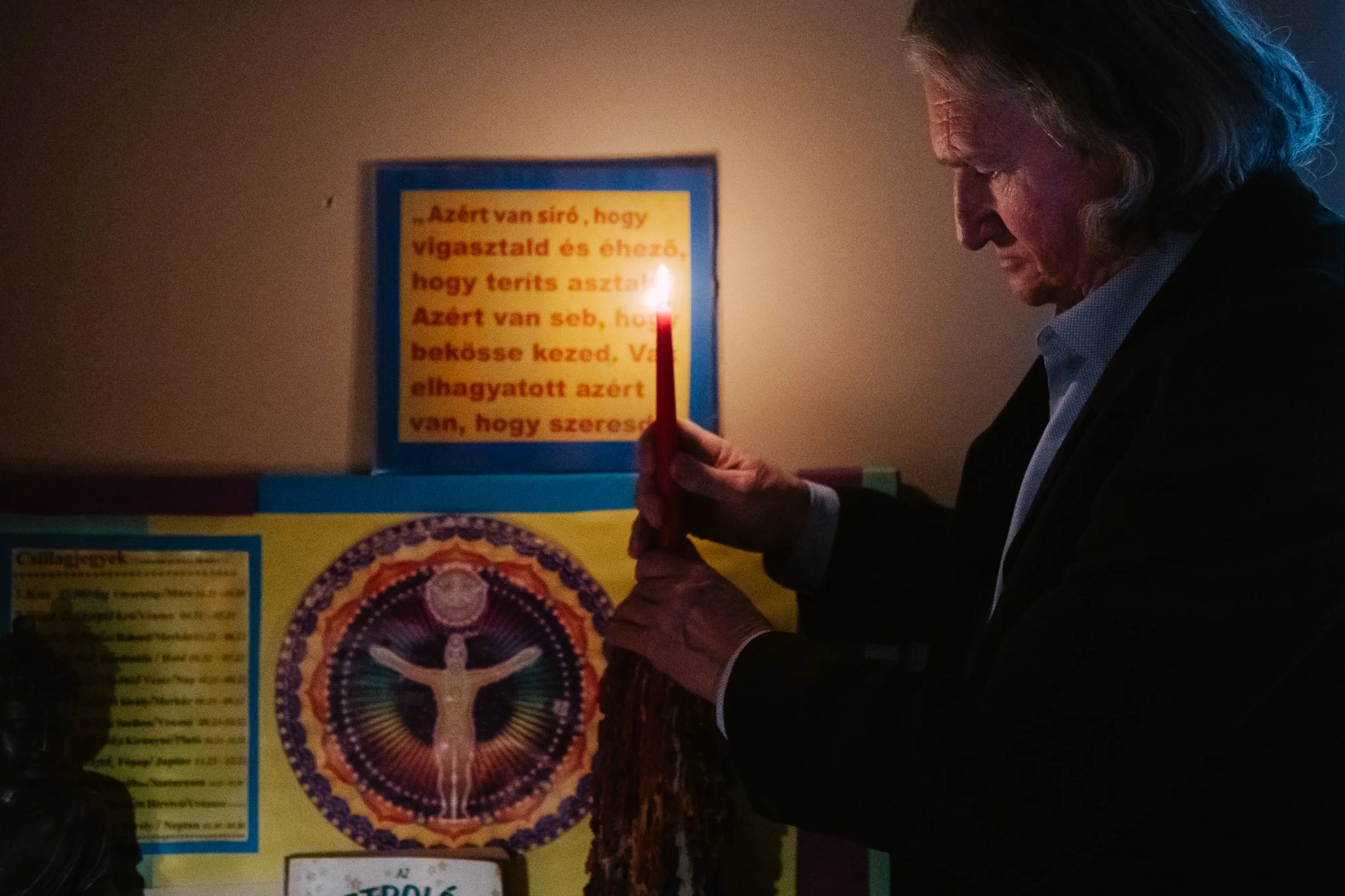Lóri, the fortune teller
(Budapest,2024,for Népszava)
László Lóránt, a fortune teller and masseur, worked for 20 years as a locksmith at the Uranium Mine in Pécs (Pécs Uranium Mine Company), then in 1991 the mine closed down and he had to find a new profession. In his search for a new path, life took a strange turn and he became a fortune teller. The letter M is clearly visible on his hand. A gypsy woman told him that only a sheer 0.01% of the world's population have it on their hands. Those who have it are magicians. And he indeed it: from fortune-telling to love spell, the handsome man nicknamed Lóri is visited by many with a variety of requests in his small shop on Népszínház Street, where he welcomes ordinary and well-known people alike. Celebrities ask him to lock the door while they are inside. Who they are is a mystery: discretion is very important in this business. Nonetheless, if you dare to ask the right question about your life you would not risk to share with anyone else, you will certainly receive an answer.

The Lóri Fortune-telling Salon at the Népszínház Street 34 in Budapest.

Lóri shuffles the gypsy card. He uses tarot and gypsy cards in his daily job.

A part of the salon.

A deck of gypsy cards. Lóri says the 36-card gypsy card is more direct than the tarot, it tells you what's wrong in a very straightforward way. The main question is where the Queen of Hearts is situated when the cards are spread on the table.

The cards of the gypsy card. That is how fortune telling happens.

Lóri lights a candle. Twilight sharpens the inner vision.

Signs, holy icons and other important, magical objects on Lóri's table.

The Magician card of the tarot card. The origins of the tarot are unknown, presumably it came from the East centuries earlier. However, not only is it an important tool in esotericism, Jung and the psychologists following his approach still use the cards to this day.

The letter "M" on Lóri's palm. It's one thing to use the magician card, and quite another to be marked by it.